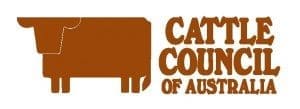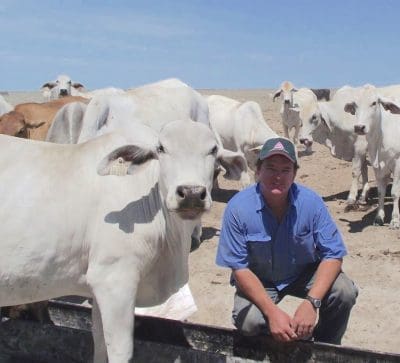THE peak industry body representing Australian cattle producers has branded Federal Labor’s policy favouring a ban of all live sheep exports as a “reckless and ill-informed” decision.

“We will continue to support the trade of live animals from Australia because of the role it plays in supporting jobs and economic development in regional Australia, and in feeding hundreds of thousands of people abroad,” CCA president Howard Smith said.
“Time and time again we see producers thrown under the bus by the negligence of others and this has got to stop”.
Mr Smith said the inhumane treatment of animals was unacceptable to cattle producers and Cattle Council supported harsh penalties applying to those found to be in deliberate breach of standards and regulations.
“Cattle Council will continue to advocate for improvements to welfare outcomes for livestock exported from Australia, a knee jerk reaction is not the answer,” Mr Smith said.
He said Cattle Council supported Prime Minster Malcolm Turnbull’s statement that Labor’s pledge was a ‘reckless and emotional decision with no scientific basis’.
Mr Smith said Cattle Council continued to work alongside Agriculture Minister David Littleproud, his Department and industry to ensure sound scientific evidence is used to inform policies and regulation.
“Cattle Council regards the Australian livestock export trade as an economically significant alternative market to domestic processing, creating essential market diversity and competition for Australian cattle producers. This trade continues to support individuals, families and their communities right across Australia”.
“As an industry we are conscious that we must continue to improve the way we operate and recognise that good animal welfare practices are crucial for the future of our industry,” Mr Smith said.
Kimberley Pilbara Cattlemen’s Association fears history is repreating
The Kimberley Pilbara Cattlemen’s Association (KPCA) has issued a statement today saying it fully supports comments in the past 24 hours by Prime Minister Malcolm Turnbull, the Cattle Council of Australia, National Farmers Federation, WA Farmers Federation and Pastoralists and Graziers Association of WA in relation to the Federal Labor Party’s decision to support the end the sheep live export trade.
“Instead of targeting those where there is evidence of unlawful behaviour, Federal Labor is choosing to unfairly target an entire industry and focus on banning the trade rather than prosecuting the perpetrators of acts of animal cruelty should it win the next Federal election due in 2019,” KPCA Chairman David Stoate said.
“As with the 2011 live cattle export ban to Indonesia, Federal Labor has yet again chosen to act whilst not being in possession of the full range of facts nor allowing the completion of the McCarthy Review into the Middle East summer sheep trade which is due to report next week.
“Whilst I too was personally horrified by the footage shown on 60 Minutes, I do applaud the swift and decisive action taken by Minister Littleproud to initiate a number of investigations to ensure improvements as well as the improvements put in place by the Australian Live Exporters Council and Emmanuel Exports, such as reducing stocking densities.”
Mr Stoate said that where any evidence of breaches of the Australian Standards for the Export of Livestock occurs, they must be thoroughly investigated and the perpetrators penalised.
It was also important for stakeholders to understand that should the Australian live export trade in sheep be banned, it would not stop the sheep export trade. Instead it would be taken up by countries with much lower standards than Australia, and would result in a net reduction of overall animal welfare outcomes.
“The Northern beef industry is still bearing the scars of the Federal Labor Government’s knee-jerk decision in 2011 to ban the live export trade in cattle to Indonesia and that there is still legal action underway being led by the Brett Cattle Company and coordinated by the NT Cattlemen’s Association in relation to seeking compensation for the detriment suffered by producers,” he said.
Mr Stoate said the live export trade in cattle from North West WA was worth at least $150 million in 2017 and is an important socio-economic contributor to the region, including a significant number of Aboriginal pastoral lessees. The entire WA live export trade of cattle in 2017 was worth $273 million.
“The KPCA emphasises the need for the current review into the Australian Standards for the Export of Livestock to be as robust as possible, with input sought from all stakeholders and should look at the implementation of options to improve monitoring and increase transparency in reporting in relation to the welfare of animals”.

